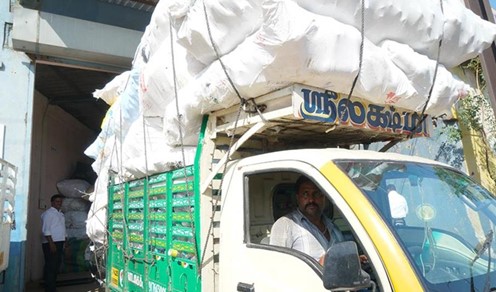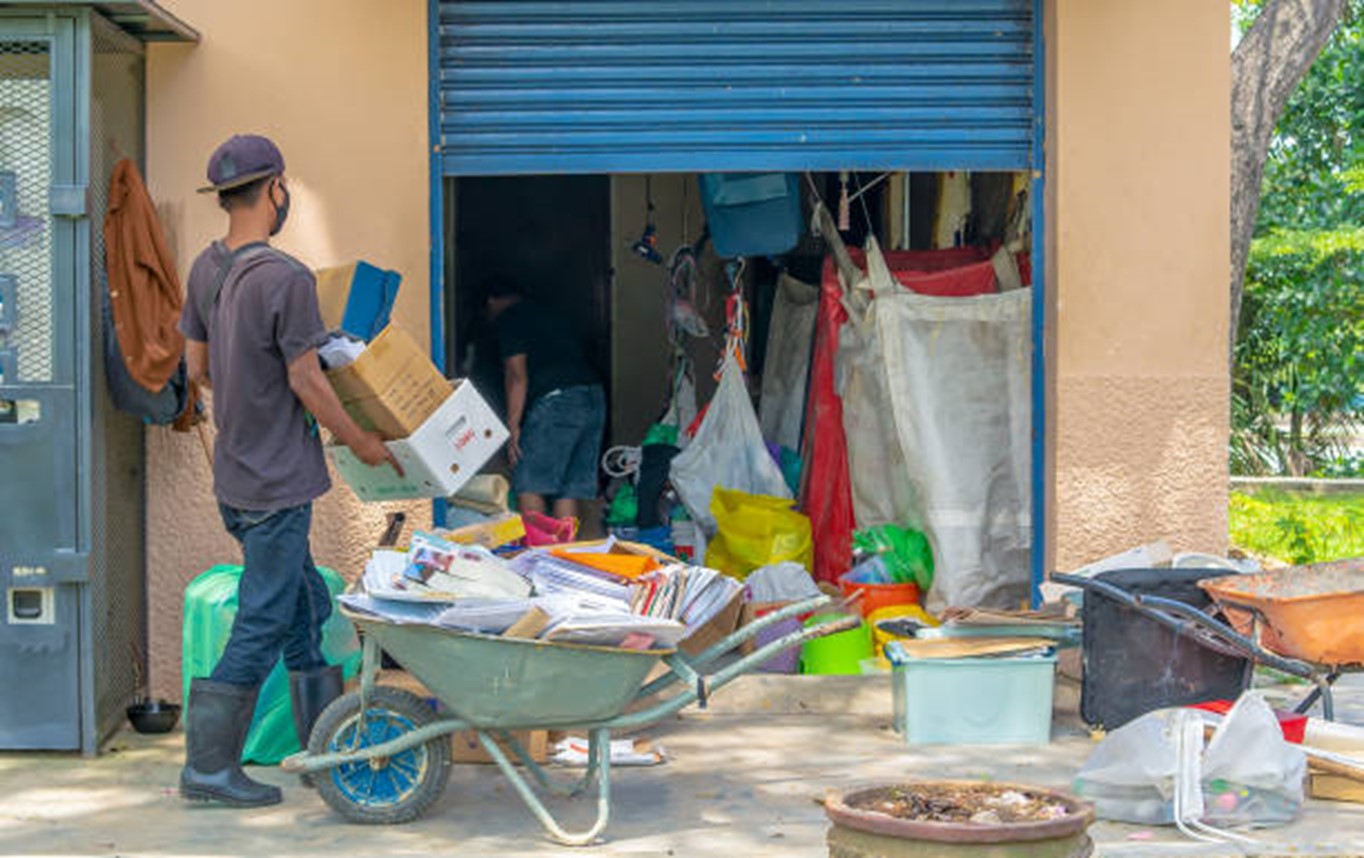An Indian Business Case - Understanding Industry Transitions
for Circular Business Models for Plastics
Plastic can be seen everywhere. You may agree that plastic items such as packaging supplies, household items, automotive components, and even building materials have become an integral part of our daily lives. Though plastic seems to have benefits such as durability, strength, and affordability, the use of plastic comes with a heavy environmental cost. Studies suggest that plastic bags take up to 20 years to break down, and plastic cups up to 450 years to decompose. While progress has been made to encourage plastic waste management, nearly 80% of all waste items end up in landfills, tossed on the ground, or found in waterways.
In 2021, India's CO2 emissions were 2.88 gigatonnes (Gt) (CSE, n.d.). As the country aims to become a global manufacturing hub, higher levels of consumption of raw materials are demanded both at the domestic level and in the global market. Therefore, the linear economic approach of take-make-waste will cause severe ecological damage with untoward economic and social ramifications. In the last few years, the behaviour and perception of people toward plastic, however, started changing. A growing number of local and national governments, including India, are adopting new policies to reduce the use of disposable plastic, and look for sustainable ways to manage waste.
"The circular economy sets out to create a regenerative system of resource use through strategies including long-lasting design, repair, reuse, remanufacturing, and recycling" (Geissdoerfer, Martin, Savaget, et al. 2017). Research estimates suggest that half a trillion dollars of economic opportunity can be realised for India by 2030 through the adoption of circular economy business models. It is anticipated that this could be achieved through a range of strategies, including reducing waste, improving utilisation of products and capital assets, product life extension, and value recovery strategies (Fiksel, Sanjay, and Raman, 2021).
Image 1: Collected waste brought to Kabadiwalla Connect recycling unit (photo credit: Kabadiwalla Connect)
As the impact of climate change has increased drastically in the last few years. Extreme weather events including rainfalls, floods, droughts, forest fires, among others, cause massive damage to our lives. People are worried and as an action to mitigate the impact, they have started to become more conscious about their lifestyle and consumption choices. The transition towards sustainable mobility, veganism, renewable energy, slow fashion, and circular economy among others is part of this response. More start-ups like Kabadiwalla Connect including Recykal, Khilonewala, ZoomCar, Yulu, and Saahas Zero Waste have established across the country, engage with products and services in the space of circular plastics economy.
Image 2: A kabadiwalla shop
Overall, there are broad efforts to support circular economy in India through several governments and industry initiatives, yet there are gaps in understanding which factors might drive, enable, and facilitate greater uptake of the full range of circular business models available, and how barriers for businesses in India can be overcome. Current downstream business solutions involve consumers, the informal sector, formalized recyclers, and ultimately major producers. In the long term, it will be important for larger polymer manufacturers (who are also oil and gas producers) to diversify and draw on recycled production inputs, to drive greater circularity and reduction in the extraction and production of virgin plastics.
India is a significant producer as well as consumer of plastic polymers and materials. The plastics value chain represents a diverse range of industry actors, including a few large producers that control domestic polymer and feedstock supply, and a heavy reliance on imports of plastic and chemical industry raw materials. The downstream plastic processing and manufacturing of plastics is fragmented, mainly consisting of Micro, Small, and Medium Enterprises (MSME); this also extends to plastic product manufacturers, machinery, and mould manufacturers. The recycling industry in India comprises many small processors, and is fragmented and highly unorganised, with large participation from informal waste collectors and recyclers.
A Circular Business Model (CBM) aims to avoid generating more waste, and retain the value of materials or products within the economy as long as possible (Geissoerfer, Vladimirova, and Evans, 2018). Such models can be cycling, extending, intensifying, and/or dematerialising materials to reduce the resource inputs into and the waste and emission leakage out of an organisational system (Geissoerfer, Pieroni, and Pigosso, 2020). While there are many examples of circular economy business models applied generally, there are fewer that apply this thinking directly to the challenge of addressing waste plastics, either globally or in the Indian context.
Kabadiwalla Connect - providing decentralised waste management solutions and technology for cities in the developing world through the informal waste ecosystem
Kabadiwalla Connect, a small start-up founded in 2014, is headquartered in Chennai, India. Kabadiwalla means ‘waste aggregator-entrepreneur’ in the local dialect. The start-up has used Information Technology and IoT-based platforms to set up a network of kabadiwallas to improve the efficiency of the informal recycling system in Chennai and a few more cities across India. It facilitates people segregating and selling recyclable waste materials (such as paper, metal scrap, glass, plastic) to local kabadiwallas, who in turn sell it to be upcycled, or recycled for a profit to larger waste aggregators and processors. The start-up collaborates with designers to make upcycled products out of waste material sourced from kabadiwalla shops and sells them on its platform.
Kabadiwalla Connect's business model is based on cycling material sources through integration of informal actors such as kabadiwallas and their waste pickers into formal waste management systems (Khazvini, 2016). It offers business-to-business solutions with geospatial mapping of informal and formal waste infrastructure in cities; digitisation to ensure transaction-based material tracking and traceability across formal/informal waste supply chains; sourcing of secondary raw materials for guaranteed supply to waste recyclers and processors; and postconsumer municipal waste collection through hyperlocal reverse-logistics solutions backed by a network of kabadiwallas and their waste pickers. By doing this, Kabadiwalla Connect, helps stakeholders recover post-consumer waste cheaply, efficiently and safely, while also diverting waste away from landfill and improving the livelihoods of informal workers. It offers a social, economic, and environmental model that has potential for replication in most cities in developing countries where informal actors form major and indispensable parts of the waste value chain.

Through collaborative research, the team gathered that the most common circular business model types in India are related to the substitution of plastic materials, recycling, and technology platforms to facilitate extended producer responsibility (EPR) schemes. This is similar to the international literature, where most examples are oriented toward recycling and substituting plastics for bio-based materials. On the other hand, the least common circular business models in our practice review of the research are 'intensifying' (sharing models, rental/leasing/access models, user cooperatives, creative commons, pooling models). Established circular business models in India include repair, reuse, and second-hand sales; services to avoid packaging; recycling plants and waste to energy plants. Emerging, or relatively new, examples of CBMs involve the substitution of plastic materials with alternatives and renewables; remanufacturing; and technology platforms for EPR.
Both the literature review and stakeholder consultations brough out common barriers to CBM implementation. These are absence of capital and high investment costs; lack of awareness and knowledge for businesses and consumers; market issues including rigidity of existing supply chains; poor government incentives and regulatory enforcement; technological or system-related barriers; a lack of required organisational culture; and commercial issues. Common enablers were the availability of green markets and supply chains; networks to support collaboration with stakeholders; commercial incentives; consumer awareness and demand; financial drivers; and the environmental awareness and commitment of organisations.

Moving forward in the research, the team aims to gather insights and on-ground understanding from various stakeholders in the space of circular businesses through consultation. The details will assist in developing a roadmap for circular economy for plastics in India, which would be provided to policymakers and other authorities to bring in necessary changes to the existing industry ecosystems.
References
-
Centre for Science and Environment (CSE). n.d. India’s enhanced climate targets and commitments: What do they mean? Details available at https://www.cseindia.org/india-s-enhanced-climate-targets-and-commitments-what-do-they-mean--11043#:~:text=India's%20current%20CO2%20emissions,be%204.48%20Gt%20in%202030, last accessed on 26 June, 2022
- Geissdoerfer, M., Savaget, P., Bocken, N.M.P., and Hultink, E.J. 2017 "The Circular Economy – A new sustainability paradigm?" Journal of Cleaner Production 143: 757–768
- Fiksel, J., Sanjay, P., and Raman, K. 2021. Steps toward a resilient circular economy in India. Clean Technologies and Environmental Policy 23: 203–218
- Geissdoerfer, M., Vladimirova, D., and Evans, S. 2018. "Sustainable business model innovation: A review". Journal of Cleaner Production198: 401–416
- Geissdoerfer, M., Pieroni, M., and Pigosso, D.C.A. 2020. "Circular Business Models: A review". Journal of Cleaner Production. Details available at: https://www.researchgate.net/publication/343810965_Circular_business_models_A_review Last accessed on 26 June, 2022
- Khazvini, F. 2016. The story of Chennai's kabadiwalla ecosystem, be waste wise. Details available at: https://wastewise.be/2016/05/story-chennais-kabadiwalla-ecosystem/#.YO-xR-gzY2z Last accessed: 21 May 2022
Aparajita Amita Mathew
amathew@devalt.org
Affiliation:
Development Alternatives, Delhi, India